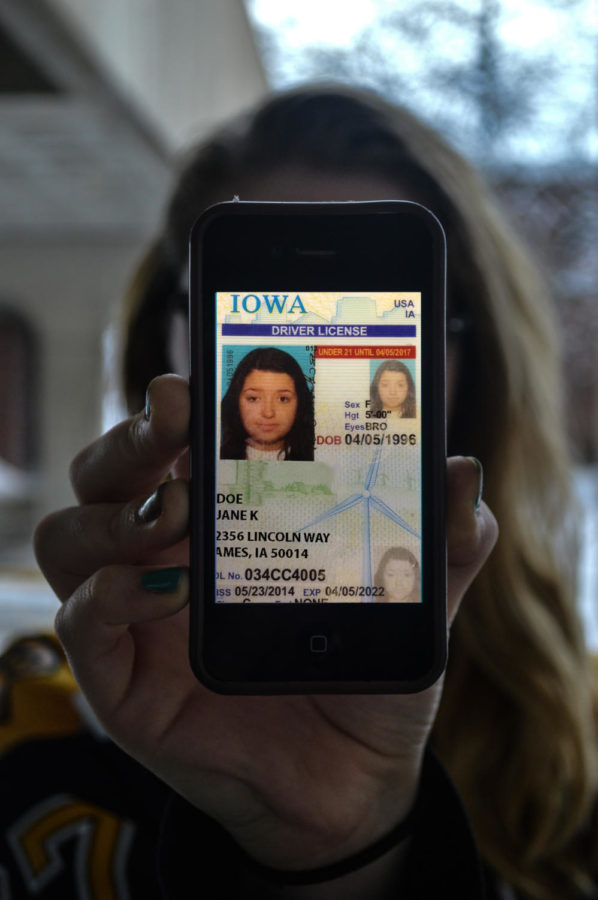Transition to digital drives DOT app development
The Department of Transportation in Iowa is working vigorously to become the first state in the U.S. to provide its citizens with a digital version of the driver’s license.
February 5, 2015
The shift from analog to digital may soon affect the flow of routine traffic stops in Iowa.
The Iowa Department of Transportation (DOT) is currently in the process of developing a mobile application that will allow drivers to access their up-to-date driver’s license along with other pertinent information, such as driving restrictions and their driving record on their mobile phone.
“[It’s] more like a breathing thing,” said Andrea Henry, the director of the Office Strategic Communications at the Iowa DOT, noting the fact that the app will connect to the Iowa DOT servers and update each time it is opened.
The program, which the DOT hopes to begin testing internally within the next six months, would allow drivers to present a digital form of their license to the police on traffic stops, Henry said.
“It’s great for people to have one less thing to carry,” said Jason Tuttle, the investigations commander for the Ames Police Department.
While the system would allow for greater convenience, it does come with concerns.
One issue is the aspect of security. The system being developed for the Iowa DOT is anticipated to have dual security features to prevent unwanted users from seeing the information the app contains, Henry said.
Currently, the DOT expects both a personal identification number and biometric security feature, such as a finger print or retina scan, to be integrated into the system, Henry said.
Privacy concerns don’t stop at the base level of app access, but flow into concerns about what else a police officer could see on someone’s phone when looking at their license during a traffic stop.
“We have to have a search warrant to do that,” Tuttle said.
Police officers have concerns about the program, especially when it comes to the physical phone in question, Tuttle said.
“We’re responsible for that phone,” Tuttle said
The police officer may still have to take a person’s phone back to their squad car in order to verify the information on the app.
“You’re not going to give me your wallet on a traffic stop,” Tuttle said, adding that some people may be just as leery to hand over their phone to a police officer.
The people developing the software don’t have to deal with the same people or circumstances that the police officers do, Tuttle said.
MorphoTrust USA, the company developing the digital driver’s license software, currently handles driver’s license issuance in the state of Iowa, Henry said.
While she was unable to comment about the exact security measures to be implemented in the app due to security reasons, Jenny Openshaw, vice president of state and local sales for MorphoTrust USA, did say the app will contain many visible and invisible security features.
For ISU students who always have their phones with them, said having your license on your phone would be preferred.
“Your life is on your phone,” said Kiran Sharma, junior in kinesiology and health.
Sharma went on to say the digital driver’s license app would be a move toward convenience. Henry agreed, saying the digital driver’s license app is one of the ways that the Iowa DOT is trying to adhere to their consumer’s needs. Officers think it might even make their job a little easier once the kinks are worked out.
“Maybe it helps us be more efficient on a traffic stop,” Tuttle said.
Like any new technology, problems and mishaps are expected, which is why the Iowa DOT is running a pilot program internal to the department Henry said.
“There’s going to be problems but there has to be mistakes for it to get better,” Sharma said.
Iowa isn’t the only state developing a digital driver’s license app. Delaware is also working on enacting a digital driver’s license program after the state’s senate passed a resolution Jan. 22, allowing its department of transportation to begin researching the idea.

















